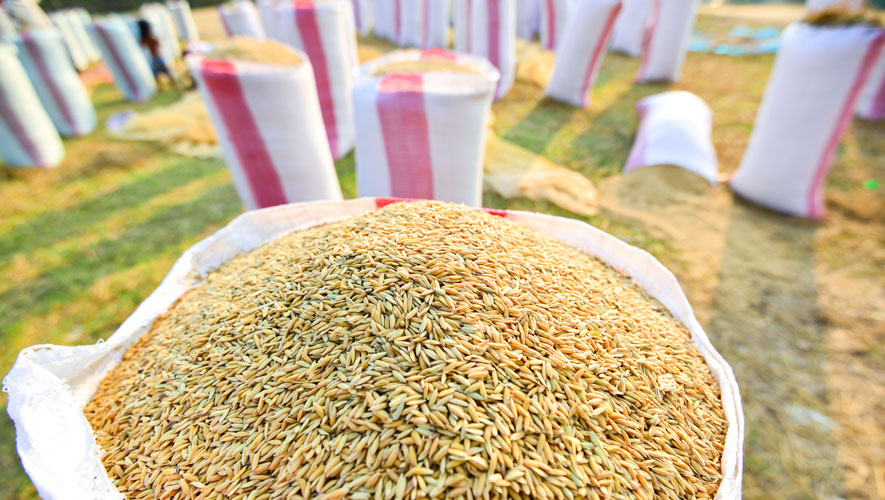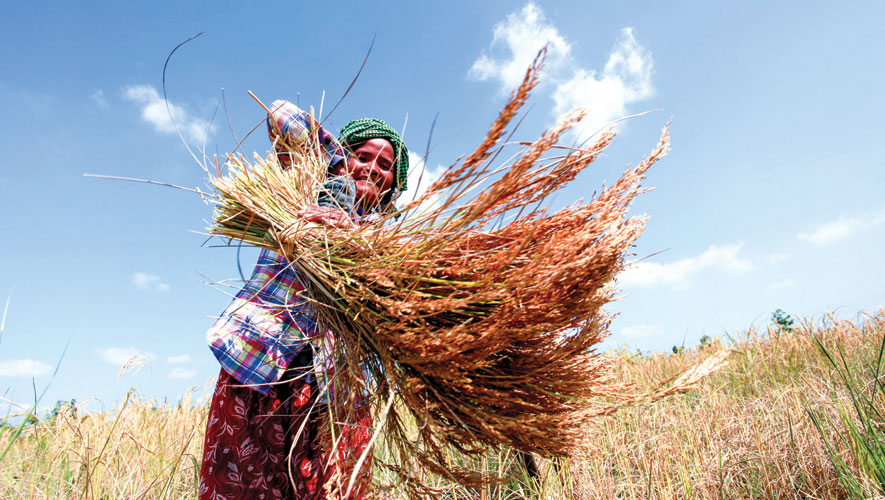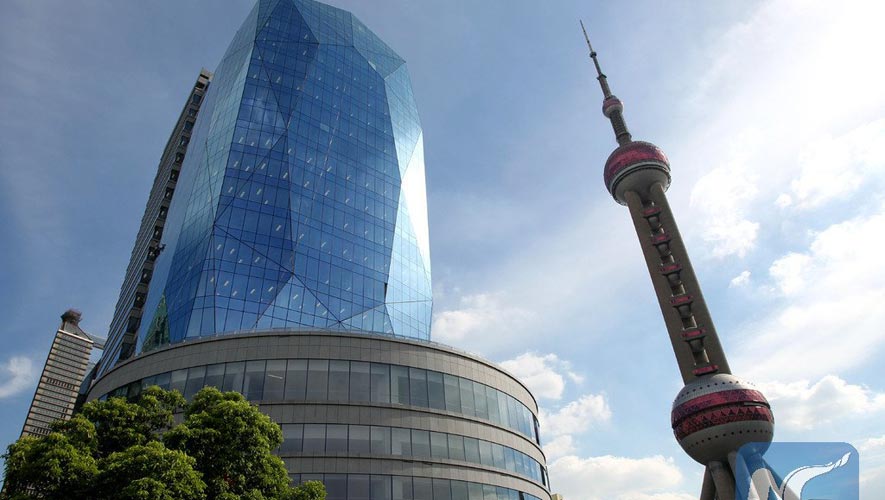Many organic rice millers and exporters are moving quickly to signing contracts with organic farmers to supply them with the premium product.
For the latest Cambodian Business news, visit Khmer Times Business
Generally speaking, organic rice is produced without modern synthetic pesticides and chemical fertilisers. From beginning to end, the process needs to follow a clear step-by-step system in order to receive proper certification.
Kann Kunthy, vice-president of Amru Rice, a company working with farmers growing organic rice, says demand for the crop is high abroad, particularly in the European Union, where he is making huge efforts to grow the rice to meet international standards.
However, he says only some areas in the country have the right potential soil to grow organic rice: Ratanank Kiri, Battambang, Pursat, Mondol Kiri, Preah Vihear, Kompong Speu, Kampong Chnang and Takeo provinces.
He says his company is now working with 5,000 farmers in Prear Vihea: four communities in Kampong Chnang, one community in Kompong Speu and another one in Takeo province.
According to Kann, AmRu Rice shipped 10,000 of organic rice, which represents 90 per cent of the total organic rice export in the country in 2018.
Boosting the yield
RiceTechCambodia, a $5 million initiative funded by the Netherlands, was officially launched last month.
This five-year programme aims to improve the livelihoods of small-scale farmers in Mondulkiri province, in the country’s northeast, by helping them attain organic certifications and increase productivity.
Organisations involved in the programme – including Oxfam, Development and Partnership in Action, Larive International, SanoRice Holding BV, Amru Rice and Mondulkiri’s Department of Agriculture.
The project, which will be implemented in the remote Kaoh Nheaek district, aims to reach 2,400 small-scale rice farmers. 1,300 of those farmers will receive extensive training in organic agriculture and good agricultural practices, while getting access to drying, storage and milling facilities to increase the quality of rice products.

RiceTechCambodia is a pilot project that will boost organic rice production in the country and earn the Kingdom a reputation abroad as a good producer of organic rice.
“As such, the partnership has the intention to implement a responsible, sustainable and inclusive rice value chain connecting demand with supply, with smallholder farmers as core stakeholders,” according to Song Saran, president of the Cambodia Rice Federation, the body charged with boosting the Kingdom’s rice exports.
Contract farming, he says, will enable farmers to shift to quality-certified organic rice cultivation practices in Mondulkiri, enhance their sustainable farming practices, ensure better value to their raw products through facilities for drying, milling and storage and guarantee them the sales.
He says: “This is a crucial step towards transforming farmers and their cooperatives as future “agripreneurs”. This project would make a positive impact on the livelihoods of these farmers,”
Prime Minister Hun Sen recently urged rice farmers to abstain from using chemical fertilizsers, arguing that Cambodian rice’s appeal abroad is that it is grown using organic techniques.
The premier complained that more and more local farmers are choosing to use chemicals to boost yields and make crops grow faster. He said this is causing Cambodian rice to lose its appeal.
“Our paddy and milled rice are competitive within the Mekong sub-region. All countries in the Mekong sub-region produce similar types of rice – Myanmar, Laos, Thailand and Vietnam all produce similar rice,” Mr Hun Sen said.
“Cambodia differentiates itself by not using chemical fertilizers and pesticides. There is strong demand for milled rice without chemicals.”
Figures from the EU shared with the Cambodia Rice Federation show Cambodia exported 8,467 tonnes of organic rice to the bloc last year, representing 3.9 percent of all EU organic rice imports.
The US was the largest exporter of organic rice to the EU, accounting for almost 70 percent of the market. It was followed by Pakistan and India, with 10 and 9 percent, respectively.
Thailand came in at number four with 4.9 percent of the market (10,522 tonnes in exports).
About 90 percent of all Cambodian exports of organic rice to the EU last year belonged to Amru Rice Cambodia.
Chan Pich, general manager of Signature of Asia, who last year exported 1,500 tonnes of organic rice to the EU, said demand for organic rice in the European Union grows about 15 percent every year.
Quality and traceability
“Cambodia’s organic rice is sought after in the EU because it has good quality and real traceability,” Chan said.
According to Chan, a tonne of organic jasmine rice fetches $1,500 while organic long-grain white rice sells for about $950 per tonne.




